If you’re pregnant (or even considering it) and worried about your baby’s health, taking a prenatal vitamin might be something you want to think about to ensure you’re getting all the vitamins and minerals your baby needs to develop properly.
Here are the best prenatal vitamins on the market, ranked. Afterwards, we’ll look in more detail about how a prenatal vitamin can help you and when you should start taking it.
Research
Rankings
Last updated: April 6, 2023
Prenatal vitamins considered: 31
Hours of research: 43
Experts reviewed: 6
Scientific papers referenced: 19
1. Ritual Essential Prenatal
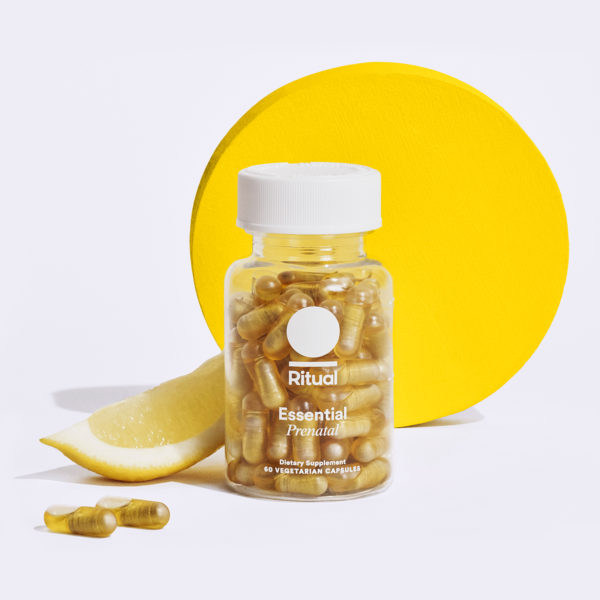
Click here for the lowest price
Ritual designed Essential Prenatal to be the only prenatal you need.
Ritual’s developed a cult-like following for its simplicity, traceability and ingredients that work best in the body. It has completely traceable and transparent ingredients — you can see all of the suppliers and their sources on their website — so you know exactly what you’re putting in your body.
The average prenatal contains 20+ ingredients, and most of those are things women already get enough of in their diets.
Plus, not all ingredient forms are created equal: most multis use forms that don’t work well in the body. Ritual’s team of in-house scientists identified the essential nutrients women actually need and put them in a single non-GMO, vegan, gluten-free, patent-pending capsule without any synthetic fillers or colorants.
Then they created a capsule that actually absorbs the vitamins better:
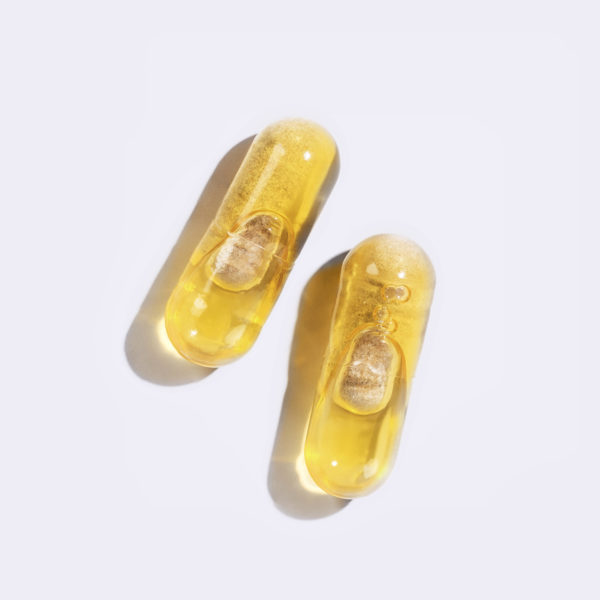
The result?
Vitamins of the future.
They’ve received praise from Wired and The New York Times for their no-nonsense approach and transparency in the “shady” vitamin industry.
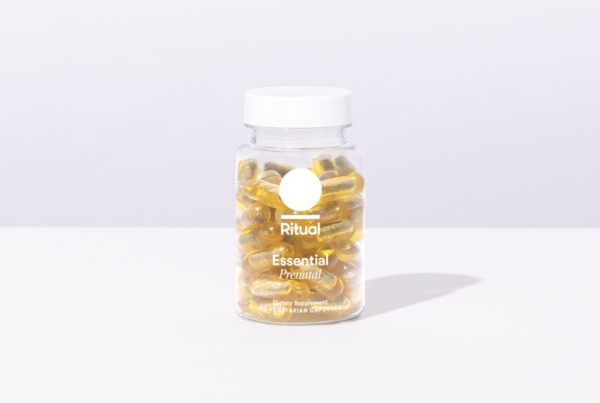
One of the better daily habits any women can have.
BodyNutrition.org 2023 women’s prenatal winner.
Click here for the lowest price
2. Garden of Life Vitamin Code Raw Prenatal
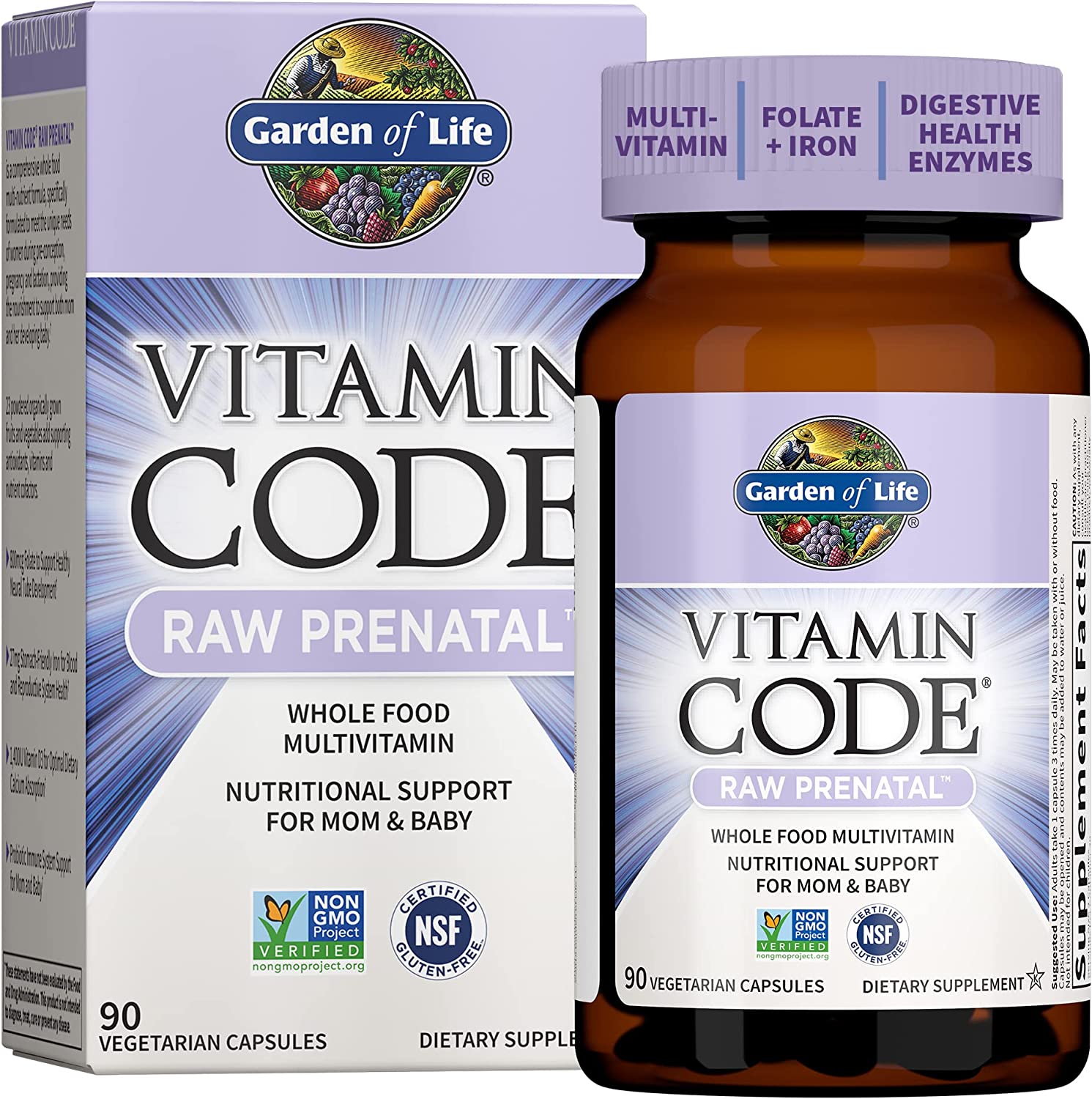
Garden of Life focuses on deriving its vitamins and minerals from natural sources, and providing them in chelated forms whenever possible.
The ingredients have everything you’ll need in a prenatal vitamin: 80 mg of folate, 2 mg of vitamin B6, and 6 mcg of vitamin B12.
The amount of vitamin B12 may need to be higher, as some scientific sources advocate for raising the recommended B12 intake, as low blood levels of B12 are associated with birth defects.
Garden of Life Vitamin Code lives up to its “raw” namesake with the inclusion of its fruit and vegetable blend as well as its sprout blend. These include the extracts of dozens of different fruits, vegetables, and sprouted seeds.
Especially if you are drawn to the fruit, vegetable, and sprout concentrates, Garden of Life Vitamin Code Raw Prenatal is a great choice for a prenatal vitamin.
3. New Chapter Advanced Perfect Prenatal Vitamins
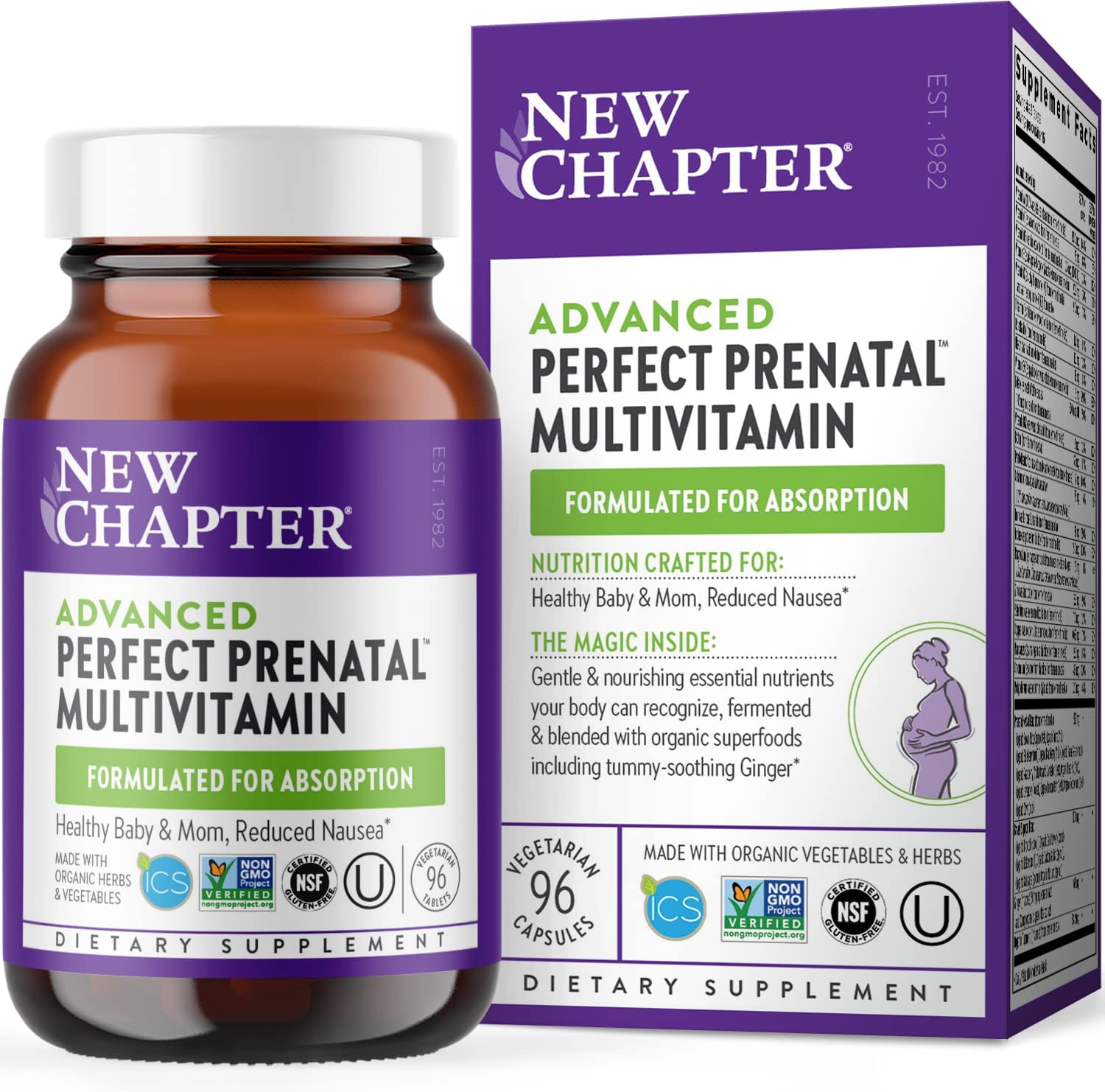
“Perfect” might be a high bar to meet, but New Chapter’s prenatal multivitamin scores pretty well.
It’s got all the essentials in reasonable amounts: 100-300% of your recommended daily intake for most vitamins and minerals, plus extra vitamin B12 (500% of your daily needs) and a small enough amount of calcium so that iron absorption is not inhibited.
The vitamin includes an herbal blend too, with concentrates from brown rice, oats, berries, dandelion, rose hips, and a few other plants. Additionally, several live culture probiotics are included for digestive health.
A few extracts from sprouted seeds are included too. These ingredients draw from natural foods that would be a normal part of your diet, so there’s less of a risk of harming yourself or your baby with an untested and unknown herbal extract from an exotic plant.
4. MegaFood Baby & Me 2
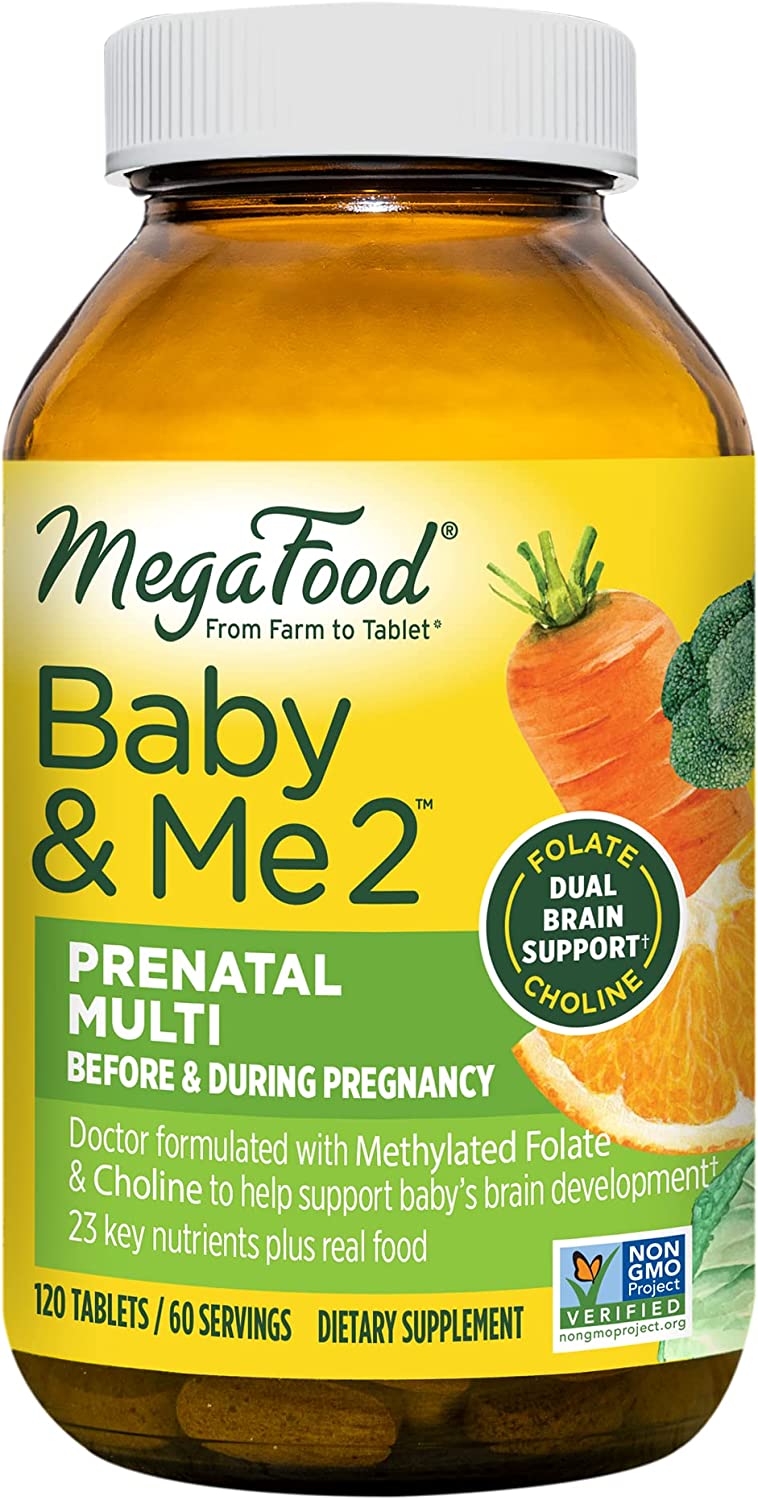
This best-selling and highly regarded prenatal is based around a philosophy of deriving its primary ingredients from natural instead of synthetic sources.
The vitamins and minerals in MegaFood Baby & Me 2 come from carrots, cabbage, oranges, brown rice, and a species of yeast called S. cerevisiae.
Among the most important vitamins and minerals, MegaFood Baby & Me 2 contains 18 mg of iron, 80 mg of folate, and 4 mg of vitamin B12.
In each of these cases, the amount of these vitamins and minerals is at or above 100% of the recommended daily intake. Wisely, MegaFood Baby & Me keep the calcium content low, so as not to upset the absorption of iron from the supplement.
The supplement also includes a small fruit and vegetable extract blend, which includes orange, berries, ginger, chamomile, dandelion, and spinach. It also comes in a vegetarian cellulose capsule, which is good news if you don’t eat animal products.
5. Thorne Research Basic Prenatal Multivitamin
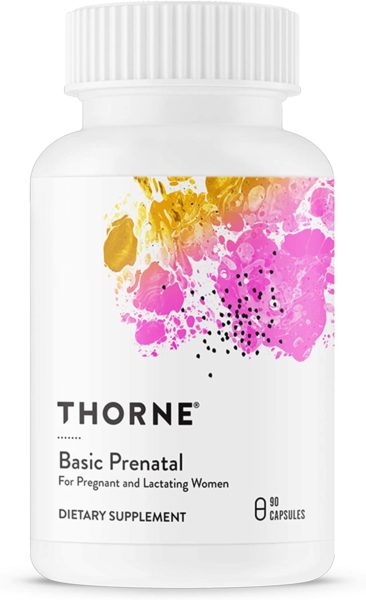
From a quick glance at the nutrition label, Thorne Research’s prenatal vitamin formulation looks pretty unremarkable, until you take a closer look.
While most of the standard vitamins and minerals are present in the expected 100-250% of your recommended daily intake, the vitamin B12 content is through the roof at 3,333% of your recommended daily intake.
This aside, metal mineral content is pretty unremarkable: 45 mg of iron (on the high end), 200 mg of calcium (could inhibit iron absorption somewhat), and moderate amounts of other minerals.
Why such a high amount of vitamin B12 specifically? It is one of the key vitamins for preventing neural tube defects, a very serious birth defect that can occur when intake of these vitamins is low.
6. Garden of Life Mykind Organics Prenatal Multi
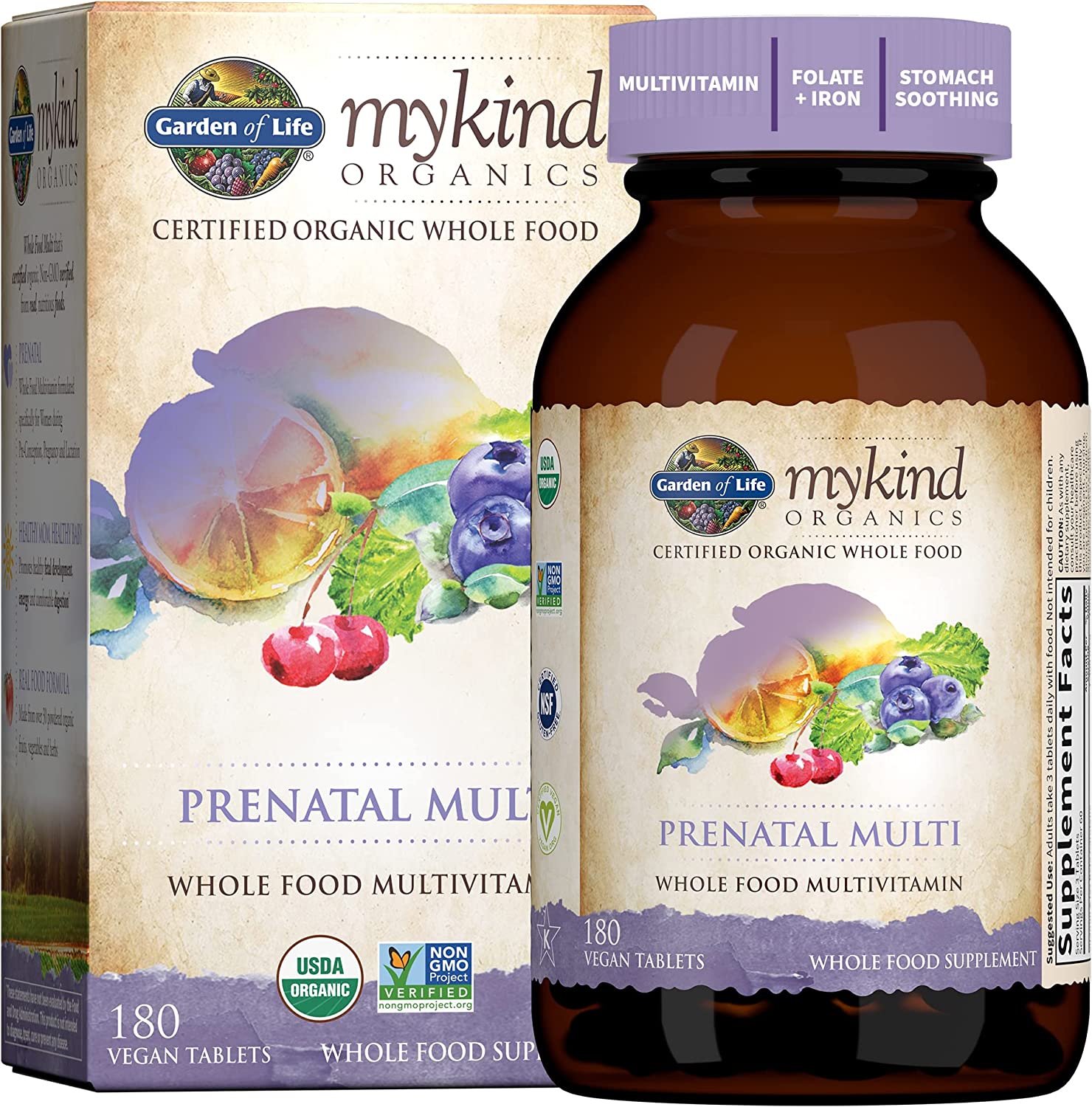
Want to keep your prenatal vitamin all-natural and vegan-friendly? Garden of Life is the perfect choice. While you do have to sacrifice a bit in terms of dosage and purity, Garden of Life Mykind Organics Prenatal Multi is the way to go if naturally-sourced ingredients that aren’t from animal products are a major priority for you.
7. Rainbow Light Prenatal One
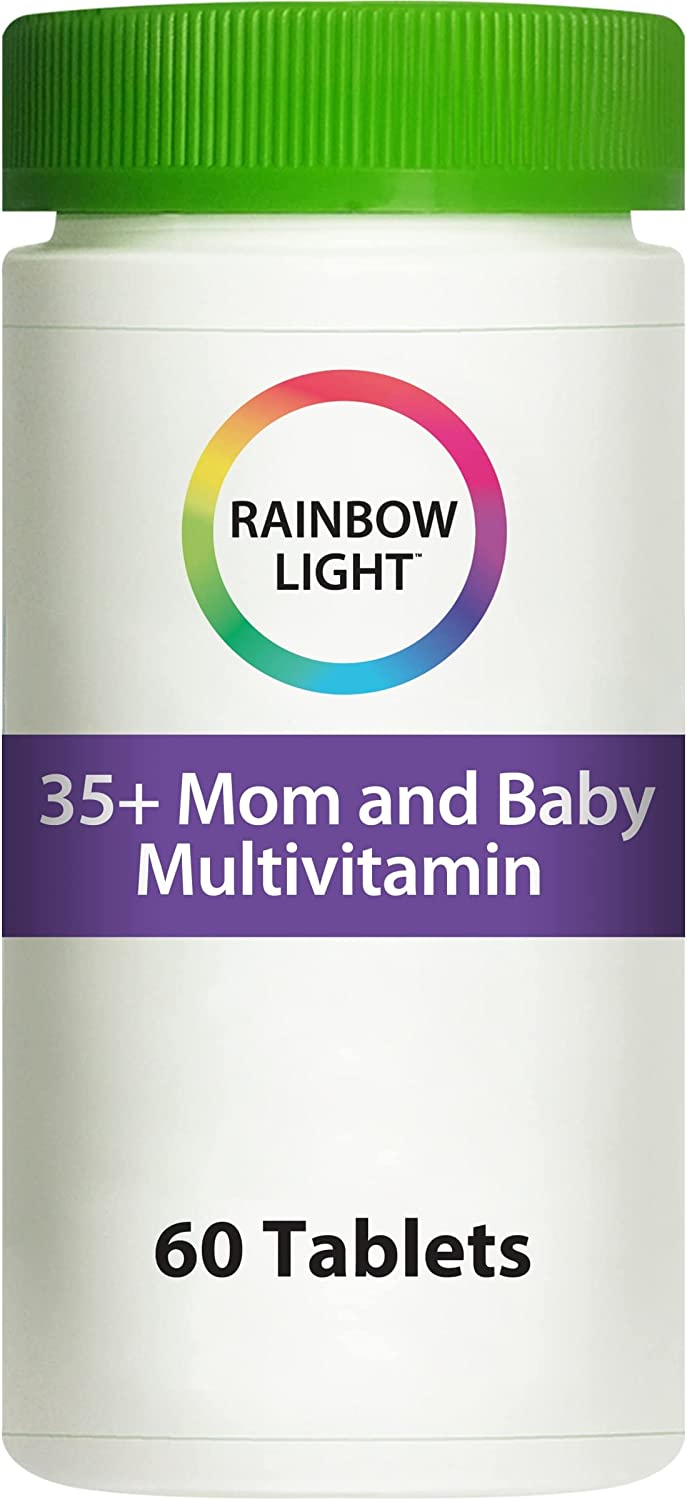
As a top-selling traditional multivitamin manufacturer, it only makes sense that Rainbow Light would also sell a prenatal vitamin. Its formulation is targeted at women age 35 and older, which it accomplishes by dialing up the levels of some of the key vitamins and minerals in their original formulation.
It’s a solid pick, though it’s lacking in some extras like omega-3s (notably, Rainbow Light sells a separate omega-3-only prenatal vitamin too).
8. Zahler Prenatal Vitamin + DHA
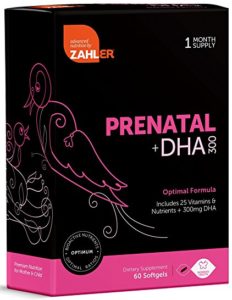
Zahler’s prenatal vitamin formulation is a serious supplement that delivers a concentrated dose of many of the critical vitamins and minerals for pregnant women.
Virtually all of the minerals are supplied as amino acid chelates or easily absorbed salts, so the bioavailability of the ingredients in this product should be very good.
One unusual aspect of the formulation is the decision to include the omega 3 fatty acid DHA in an amount of 250 mg. It’s known that omega 3 fatty acids may help improve maternal mental health during pregnancy, but omega 3 fatty acids are usually delivered in higher doses than the 250 mg of DHA present in Zahler Prenatal Vitamin + DHA.
9. Deva Vegan Prenatal Multivitamin
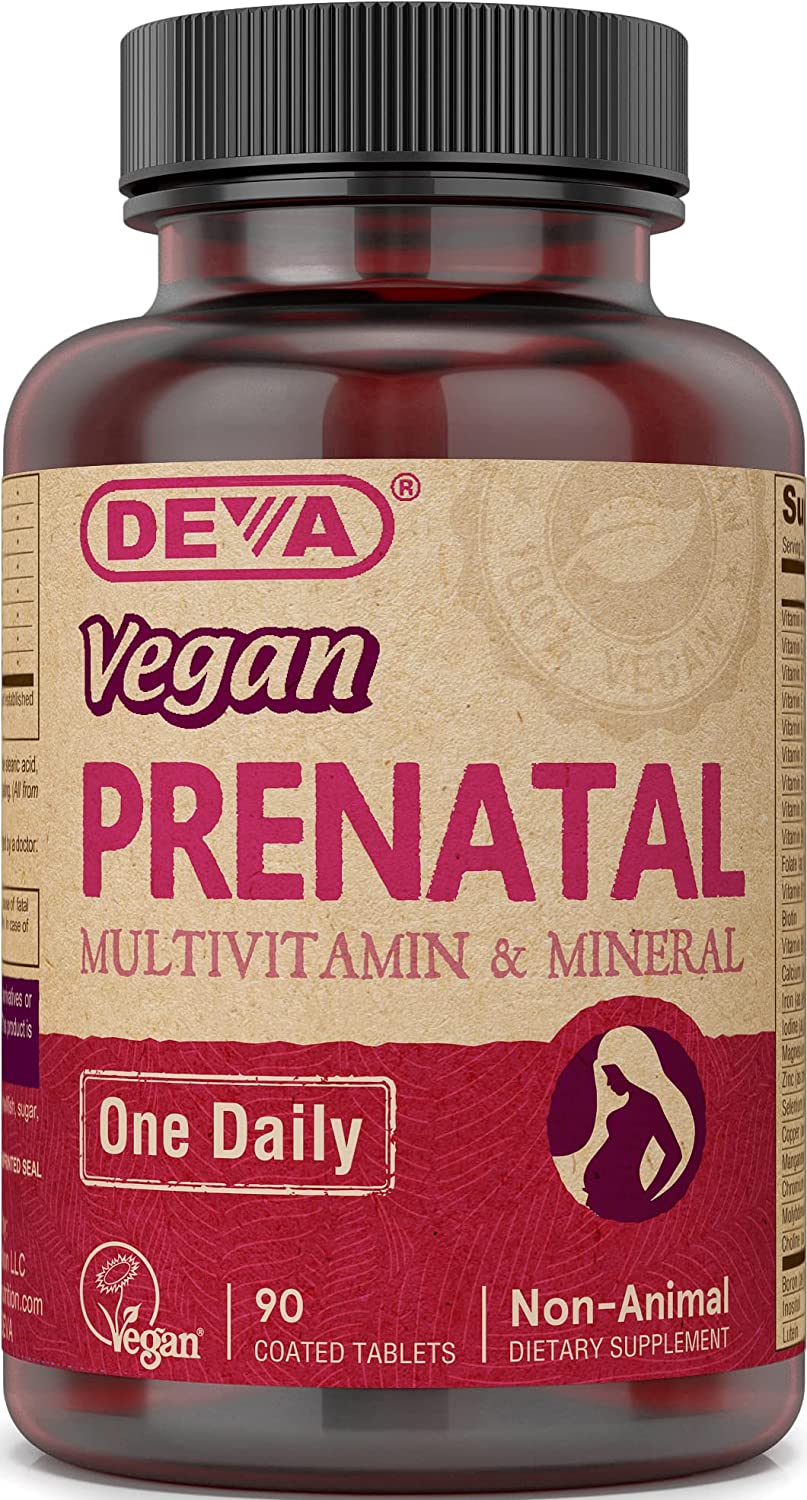
If you are a vegetarian or a vegan, it can be especially hard to make sure you are getting the right amount of the essentials for having a healthy baby.
Deva Vegan also includes a number of herbal extracts. Among these are cinnamon, apple pectin, alfalfa leaf, chamomile, rose hips, and acerola extract.
Usually you can assume herbal extracts at least do no harm, but in the case of prenatal vitamins, you should be extra vigilant—many herbal extracts are poorly understood and not well-studied, so their effects on your baby’s health are unknown.
10. One a Day Women’s Prenatal Vitamin with DHA
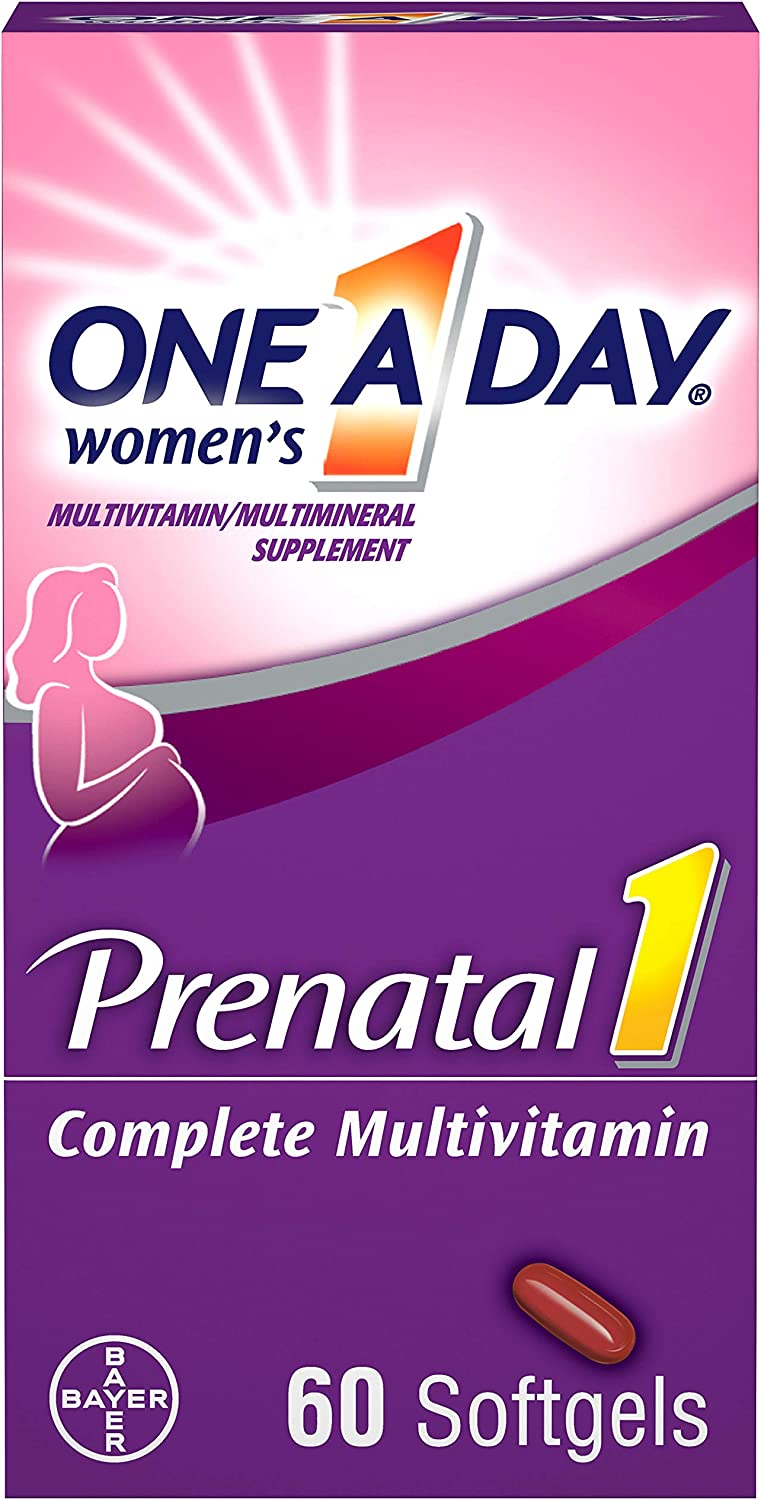
While the raw nutritional daily values are solid, One a Day Women’s Prenatal Vitamin with DHA leaves a lot to be desired.
The daily values for its ingredients are all at 100%, giving the impression that the supplement’s designers simply wanted to check off all the boxes without putting much thought into the specific formulation.
The sources of the vitamins and minerals tend to be cheap compounds with poor bioavailability—metal oxides that can exacerbate an upset stomach, for example, instead of the more bioavailable and easily digestible amino acid chelates or soluble salts found in better-quality supplements.
Category winners
Best prenatal vitamin overall: Ritual Essential Prenatal
Ritual Essence Prenatal delivers all the essential vitamins and minerals your baby needs, and puts particular care into ensuring the source materials are ultra-pure and free of contaminants. That’s exactly what you want in a prenatal vitamin, which earns it the top overall spot.
Best prenatal vitamin for breastfeeding: Ritual Essential Prenatal
The importance of prenatal vitamins doesn’t stop at birth. Your baby gets nutrients through breastfeeding, so maintaining a high level of essential vitamins during that period is critical. Ritual Essential Prenatal, with its ample supply of B complex vitamins including folate, is perfectly suited.
Best prenatal vitamin for women over 35: New Chapter Perfect Prenatal Vitamins
Getting the right vitamins and minerals is even more critical for older women looking to have kids, since nutrients like folate are critical for preventing birth defects. New Chapter gets it right, providing high doses of all the essentials.
Best natural prenatal vitamin: Garden of Life Vitamin Code Raw Prenatal
If you want all of the ingredients in your prenatal vitamin to be naturally-sourced, look no further than Garden of Life. It uses yeast cultures and fruit and vegetable extracts to provide all of the essential vitamins and minerals you need from a prenatal vitamin.
Best prenatal vitamin prior to conception: Ritual Essential Prenatal
It shouldn’t come as a surprise that the best prenatal vitamin overall is also the best prenatal vitamin to take prior to conception. You need high levels of all the right vitamins and minerals for your entire pregnancy, and Ritual Essentials is the best way to do it.
Best vegan prenatal vitamin: Garden of Life Mykind Organics Prenatal
Vegans need to pay special attention to their intake of B-complex vitamins and iron. Fortunately, Garden of Life uses whole food, vegan-friendly ingredients to make an excellent prenatal vitamin featuring both of these essential nutrients.
Who should buy prenatal vitamins?
Since a prenatal vitamin is specifically formulated for women who are pregnant, it seems pretty obvious who the target market is for this supplement. However, there are a few additional categories to be aware of.
Women who are currently pregnant at any stage. Prenatal vitamins should be taken throughout your pregnancy, as the nutrients in them are critical both during early fetal development in the first trimester, and during maturation in the second and third trimesters.
Women who are trying to get pregnant, but aren’t yet. If you are actively trying to get pregnant, you should already be taking a prenatal vitamin. The reasoning behind this is that it’s not immediately obvious when you actually conceive a baby, and as a result, you want to make sure your vitamin and mineral levels are optimal for your entire pregnancy.
Women who are breastfeeding. Furthermore, you should keep taking a prenatal vitamin after giving birth, since your baby is going to get its nutrients via your breast milk as long for as you are breastfeeding.
As you might imagine, optimal levels of vitamins and minerals in your body translate directly to optimal levels of vitamins and minerals into your breast milk. So, prenatal vitamins are not just for women who are currently pregnant.
They are for women who are trying to get pregnant, and for women who have given birth and are still breastfeeding. After you transition away from breastfeeding your baby, you can revert to a standard multivitamin for women, but until then, stick with a prenatal vitamin.
How we ranked
A proper prenatal vitamin requires several key ingredients. According to the Mayo Clinic, prenatal vitamins should absolutely contain folic acid and iron, as these are essential for proper fetal development (1). We used medical guidelines to inform our rankings. Here are the criteria we used.
Required to have folic acid and iron. To even make it into consideration, all potential candidate supplements that we evaluated had to contain both of these essential ingredients.
Additional proven ingredients like omega-3s and vitamin D. Having established the bare minimum, we then looked to see which prenatal vitamin products contained other important nutrients for things like brain development and proper hormonal and musculoskeletal function. This included nutrients like omega 3 fatty acids, vitamin D, and calcium.
While these are not quite at the same level of critical importance as folate and iron (which help prevent birth defects), they are nevertheless important to look for if you don’t already take a separate fish oil supplement, vegan omega 3 supplement, and/or a vitamin D supplement.
Prenatal supplements which contained these nutrients garnered a lot of points in our scorings, while those which did not contain any of these important nutrients were dropped.
Beneficial trace minerals and vitamins at appropriate dosages. We also looked for trace minerals like copper, zinc, and iodine, and checked the vitamin C and vitamin A levels as well.
Vitamin A in particular is helpful in small amounts, but can be toxic in large amounts, so we immediately ditched anything that had too much vitamin A—it’d be better to take nothing than to take too much vitamin A.
Super clean supplement design with no extraneous ingredients. Having established the nutrient content, we then looked at the overall supplement design. More than ever, we prioritized supplement purity above all: when you are pregnant or breastfeeding, you definitely don’t want any extraneous ingredients, artificial colors, or artificial flavorings.
Prenatal vitamins that didn’t meet this high standard also got eliminated from consideration for our rankings.
We sorted the final crop of prenatal vitamins by the dose and potency of their most important vitamin and mineral ingredients, as well as by purity. We’re confident that these are the absolute best prenatal vitamins on the market right now.
FAQ
Q: Do prenatal vitamins increase the chance of pregnancy?
A: No, contrary to what the name might suggest, a prenatal vitamin is not actually designed to increase your chance of getting pregnant. Instead, they are designed to make sure your body has the optimal balance of vitamins and minerals to sustain a healthy baby throughout an entire pregnancy.
Some people do resort to fertility supplements in an effort to increase the probability that they’ll get pregnant, as these supplements do include ingredients that (hopefully) make pregnancy more likely.
Regardless, it’s important to recognize that fertility supplements and prenatal vitamins are fundamentally different products with different goals in mind.
Q: Is it okay to take a prenatal vitamin if you are not pregnant?
A: Yes, the only real difference between a prenatal vitamin and a normal multivitamin for women is that a prenatal vitamin has somewhat higher levels of a few critical ingredients like folate, iron, and vitamin D, to name just a few.
While taking too much iron for a long time (i.e. several months or years) could be undesirable, over the short term, there’s nothing wrong with taking a prenatal vitamin if you are not pregnant. In fact, it’s exactly what many doctors recommend if you think you might become pregnant in the near future.
Q: When should you start taking a prenatal vitamin?
A: Most doctors and experts believe that you should start taking a prenatal vitamin before you get pregnant. Epidemiologists at the Centers for Disease Control and Prevention go as far as recommending that all women of reproductive age, even those who are not planning on getting pregnant, take an adequate amount of folic acid, just because of the drastic benefits in the off-hand chance you do get pregnant.
Of course, this doesn’t mean you need to be taking a prenatal vitamin necessarily, but it won’t hurt. If you think you might get pregnant soon, or are trying to get pregnant, you should already be taking a prenatal vitamin.
And if you are pregnant and haven’t been taking one, you should start today: better late than never. Fetal development is a long process, and proper vitamin levels are important for all of it.
Q: What should you look for in a prenatal vitamin?
A: The two most important ingredients to look for are folate and iron. These ingredients support proper fetal development and prevent birth defects. Next up, you should also look for vitamin D, omega 3 fatty acids, and calcium.
While the evidence for these ingredients isn’t as strong, there’s still a compelling case to be made that they support proper fetal development and growth. Plus, in the case of omega 3 fatty acids, they will also support your own mental wellbeing during pregnancy.
As you might guess, we used exactly these criteria to evaluate the top prenatal vitamins on the market in our rankings.
Q: How much folic acid should be in a prenatal vitamin?
A: According to the Centers for Disease Control and Prevention, women of reproductive age should look for 400 mg of folic acid in a prenatal vitamin (2).
There is strong scientific evidence that indicates that folic acid supplementation can prevent birth defects like spina bifida and problems with brain development. Any high-quality prenatal vitamin should provide at least this much folic acid per day.
Related articles
- Multivitamins for women
- Folate
- Probiotics for women
- Protein for women
- Fertility supplements
- Vitamin B12
- Iron supplements
Recap
A prenatal vitamin supplement can be a great way to ensure that you are on the right track for ensuring your baby develops in a healthy way. Making sure you get enough folate, vitamin B12, and iron are key aspects of a prenatal vitamin.
Remember, if at all possible, you should start taking a prenatal vitamin before you try to get pregnant, as the first few weeks of pregnancy involve some critical development of your baby’s nervous system and spinal cord.
Especially when it comes to choosing a prenatal vitamin, talking to your doctor is a good idea, as you might have some specific individual needs that need to be taken into account when deciding on a prenatal vitamin supplement.
For BodyNutrition’s #1 prenatal recommendation, click here.